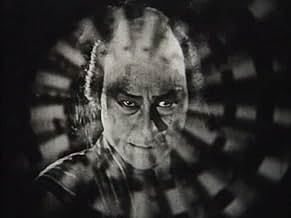Kinugasa Teinosuke had started his directorial career in 1922, having first worked as an "onnagata", actor who specialized in female roles. After women were allowed to act on stage and in films - good decision by the way - Kinugasa moved behind the camera. Not much of his early works survive, but happily his two most famous silent pictures have done so. Kinugasa's first masterwork was the low-budget existential horror drama "Kurutta ippeji" (A Page of Madness, 1926). The film was critically acclaimed but not exactly a crowd-pleaser. Kinugasa followed it with "Jujiro" (Crossroads, 1928), a film that has a fitting English title. In his later years Kinugasa moved away from his early, experimental style to more traditional jidei-geki films. Though often good, they weren't as continuously exciting pieces of film-making, and one sometimes wishes that Kinugasa had remained this interesting an artist throughout his long career.
"Jujiro" tells a more traditional story than "Kurutta ippeji" but supports it with strong, nightmarish visuals. In this period film, Rikiya (Bando Junosuke) gets in a fight upon visiting a brother. He gets blind and believes that he has killed the other man. Rikiya gets a panic attack and escapes home to his sister Okiku (Chihaya Akiko). In order to save her brother who has committed a horrible crime, Okiku sacrifices herself and becomes a prostitute. This narrative is very typical for Japanese period films. What I liked best was that Kinugasa presents this scenario in a horrifying light. Or actually he presents it claustrophobic darkness. So many other directors, even good ones, treated narratives like this as pure melodrama. The audience is supposed to feel sad, but also acknowledge that this is how it sometimes goes. "Jujiro" is un-apologetically dark, a near-surreal trip into distant centuries.
The visuals and camera angles are constantly wonderful. Kinugasa manages to cram in so many wonderful shots, that the story-line is forced to take a secondary role in the viewing experience. And that's not a bad thing. Both lead actors were really good, with very expressive faces. As a movie, this is not as compact as "Kurutta ippeji", nor is it as experimental or historically important. But compare it to any other Japanese silent film from the 1920's, and it definitely appears as a visionary work by a talented director.




















